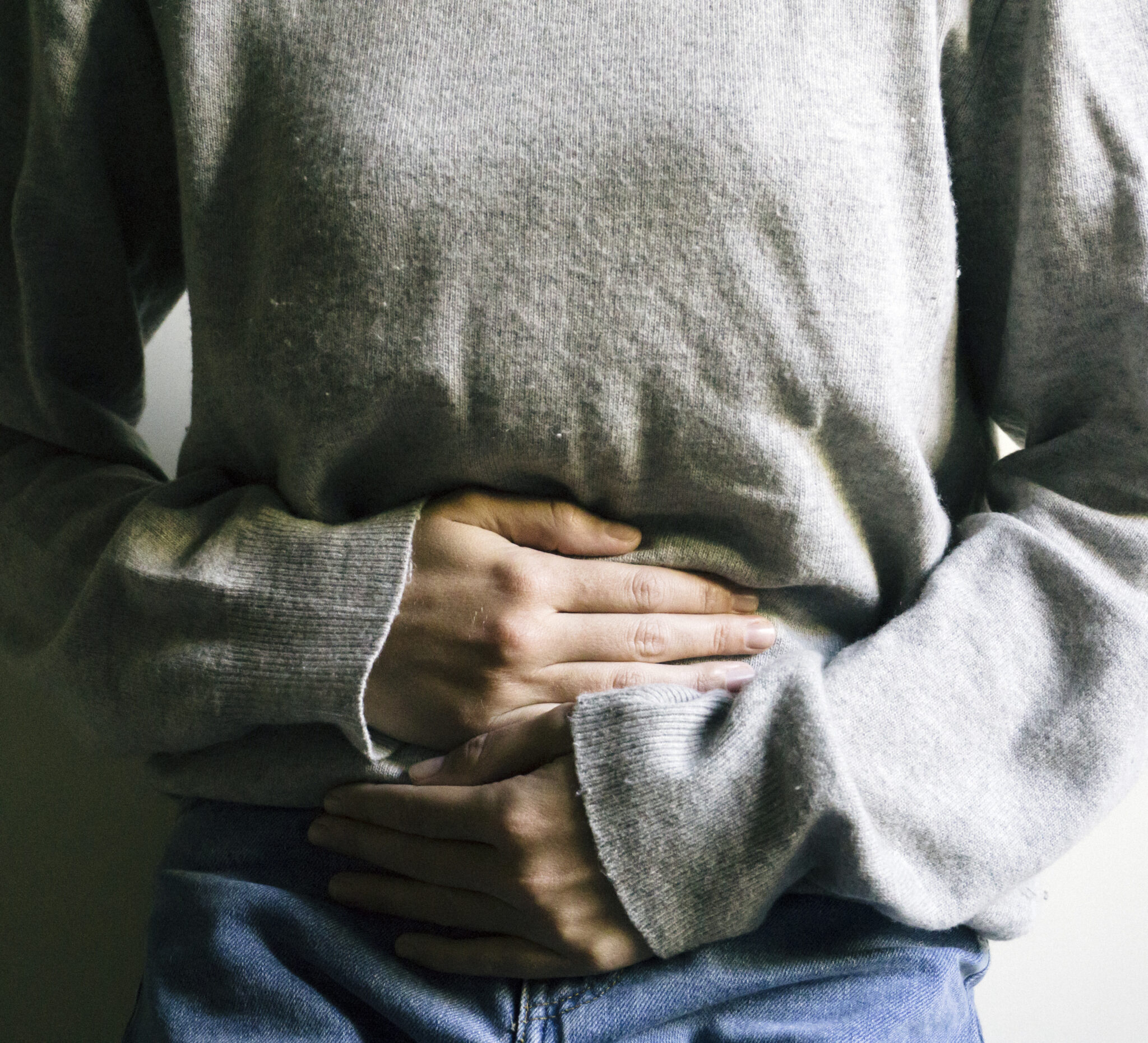As important, challenging, and impactful as menstruation is to our bodies, we learn relatively little about it and at an age when we’re too young to really grasp it. Here, Real Woman does a deep dive into some of the most significant gaps in our knowledge about our cycles.
When patients are experiencing issues like mood swings, breast tenderness, irritability, and even depression before their cycle, each of those symptoms can be managed differently, depending on how severe they are.
There’s a famous scene rom the classic coming-of-age movie My Girl that you undoubtedly remember. The lovable tomboy Veda screams and runs down the stairs, yelling, “I’m hemorrhaging!” Her stepmom, played by Jamie Lee Curtis, proceeds to tell her they need to have a little chat—presumably about how babies are made and why she’s bleeding. When her friend, Thomas J, shows up at the front door to play, she shoves him and says, “Get outta here. And don’t come back for five to seven days!”
Maybe your first period came as a horrifying shock, like Veda’s. Maybe you learned about it via a cringe-inducing conversation with a well-meaning parent. Maybe the school nurse showed a little movie with (lame, barely anatomically correct) cartoon depictions of a uterus and ovaries. Perhaps you were chased around the playground by an older kid accusing you of having Aunt Flo over for a visit, which you thought was completely bizarre.
In whatever way the concept of menstruation was first introduced, this was the information that would eventually settle in: At some point in your early adolescence, you would start bleeding from your vagina about once a month for several days, a phenomenon that enables you to get pregnant, is often accompanied by pain, and that would occur for approximately 40 years.
As shocking and life-altering as that information is, it’s likely you never learned much else about your period—a truly stunning reality considering there’s a whole lot more to know about this vital sign (yes, your period is considered a vital sign!). Here, we put the spotlight on what it means when one’s cycle changes, the impact of stress and sleep (and the COVID vax!), how to ease PMS, and more—including how periods are being politicized.
What Our Period Can Tell Us
Maybe you’re going along, month after month, having totally “normal” periods. And then one month, boom! You find yourself in the middle of a horror film during what started as a quick trip to the grocery store. Or the opposite happens—for a few months, your flow is practically nonexistent. And you wonder: What does this mean, and should I be worried? People can expect to have ebbs and flows over the course of their life as their hormones ebb and flow, points out Meghan Patel, MD, an ob/gyn with Capital Health. Here, specific changes and what they can indicate:
Heavier than normal flow
“With an unusually heavy flow, we usually think about structural versus nonstructural causes,” says Dr. Patel. “Structural causes can be issues within the lining of the uterus, like a polyp, or fibroids, endometriosis, or adenomyosis, which is endometriosis in the muscle layer. It can also signify issues like cancer malignancies—that’s why sometimes we’ll want to do a biopsy based on a woman’s risk factors.” When it comes to nonstructural issues, Dr. Patel says, an unusually heavy flow can happen if you have a bleeding disorder, “or if you’re taking medications that can cause you to bleed. It can also stem from endocrine causes like thyroid dysfunction.” She adds that certain methods of birth control, such as the Paragard IUD, are associated with a heavier menstrual cycle.
Lighter than normal flow
A thyroid issue can also cause a light flow, says Dr. Patel. And because you need a certain amount of body fat percentage to be able to get a period, she adds, if a woman has a low BMI, she may not menstruate or have a light flow because of hormonal changes. Another thing that needs to be considered is whether the woman is going through menopause (if she’s under 40, that’s more concerning than if she’s over 40, says Dr. Patel). And a prolactinoma, a prolactin-secreting tumor, is also a potential cause.
Change in frequency
If it’s more frequent than your usual cycle, again, weight can play a role, says Dr. Patel. “Or, if you have a polyp, that can cause irregular bleeding, and when you’re using certain birth control pills, especially the lower-dose ones, you can have bleeding between your cycles as well. And then, most people don’t realize when you go through menopause, your cycles can become closer together before they become further apart,” she explains. “And it’s very rare, but some people have what’s called a luteal phase deficiency—if you’re trying to get pregnant and your cycles are close together, closer to 21 days, then that can be a sign of that concern or issue. And we should think about polycystic ovarian syndrome as well.”
Unusual cramps
If you’re a lucky person who doesn’t usually get cramps, but then suddenly you’re bent over in pain, “again, this can be a sign that there’s a structural issue like fibroids or endometriosis,” says Dr. Patel. But keep in mind that your cycles can evolve, she adds, especially as you get closer to your forties: “You can go from someone with heavier cycles to lighter ones, or vice versa, or less pain to more pain to less pain. People will sometimes notice more cramping when their cycles get heavier or lighter.”

When should you see a doctor? Dr. Patel's advice:
“When it’s bright red bleeding and very, very heavy—you’re soaking through a pad or tampon every 30 minutes to an hour—that’s problematic and a sign that you need to see your gynecologist.”
“I tell patients even if it’s not pathologic, if it’s bothersome and it’s interfering with your day-to-day and is a challenge for you, that’s worth speaking to your doctor about, because what might be heavy for one person isn’t heavy for another. The fix might be something simple like, ‘Hey, you can just take Ibuprofen with your cycles and that can help lighten them and decrease your pain.’”
“Your age range is important: If you’re menopausal and you bleed, call your doctor—this doesn’t mean go to the emergency room, but it’s definitely something you want to talk to your doctor about.”
“See your doctor if you’re not bleeding for three months or more, if you’re over age 18. Under 18, you can wait six months. And if you bleed for 10 days or more, that’s another reason to see your provider.”


Three Period Disrupters
Stress: OK, here’s a Biology 101 lesson. Your period is controlled by a part of your brain called the hypothalamus. When it’s chugging along under normal circumstances, it releases chemicals that kick the pituitary gland into high gear, which in turn sends a message to the ovaries to release estrogen and progesterone. But when you’re under stress, another hormone comes into play: cortisol, that fight-or-flight engine—and it gets in the way of that hypothalamus > pituary > ovaries messaging. The result: Light periods, or even missed ones. Now, different people respond to stress differently, of course; what sends one person through the roof won’t bother someone else at all. But overall, when your cortisol levels soar, you’re more likely to have missed or off-timed periods.
Sleep: This is related to stress, because when you’re not getting enough sleep, it also affects your stress hormones, as well as your melatonin levels. You’ve heard about the role of the hormone melatonin on sleep—it also helps regulate when your period starts each month, along with how long it lasts. So, when melatonin levels are knocked out of whack, your period can be delayed.
Travel: When you travel across time zones, your circadian rhythm can be thrown off. And that can mess with your levels of estrogen and progesterone, which control ovulation—which can translate into a later-than-normal period. The impact of circadian rhythm disruption on menstruation has been seen in studies on female shift workers, because of their changing sleep patterns.
Another Healthy Reason to Exercise
Moving your body on the regular is a head-to-toe wellness boost, and it can help keep your period chugging along healthfully too. The good hormones that are released when you exercise—such as endorphins and serotonin—can help ease pain and cramps, as well as mood ups and downs. But are you a fitness junkie? If you work out too heavily, you may skip a period because it can throw your estrogen levels off. This is especially true if you’re not eating enough and your calorie levels tip too low. Usually, though, exercising helps keep your menstrual cycle easier to deal with.
Want to Ease PMS?
For many women, the week or so leading up to their period is much worse than the actual days of flow. “When patients are experiencing issues like mood swings, breast tenderness, irritability, and even depression before their cycle, each of those symptoms can be managed differently, depending on how severe they are,” says Dr. Patel. “I take a bit of an East-meets-West approach with some of the things I recommend. It’s been found that calcium, magnesium, vitamins E or B6, and evening primrose oil can sometimes help with some symptoms.”
With depression related to your cycle, it’s important to talk to your gynecologist about treatment options, Dr. Patel says. A severe form of PMS is called premenstrual dysphoric disorder (PMDD), which can also cause anger and irritability, anxiety, insomnia, and more. “It usually occurs because of the withdrawal from hormones, so you have symptoms right before your cycle, and they resolve during your cycle.” Many women are affected by it, she continues, and she thinks it’s often underreported because patients may say, “Oh, I feel a little down” not realizing it’s something more serious. “Like most psychiatric illnesses, each person needs to be treated differently,” she says. “Sometimes we can manage it by stabilizing those hormones via birth control, and sometimes we use antidepressants. A lot of times getting rid of your period by taking birth control pills continuously can be very, very helpful. And then some holistic options like dietary changes and taking certain vitamins can help.”




